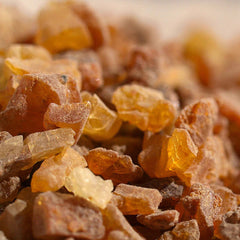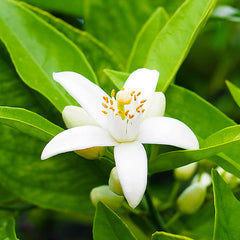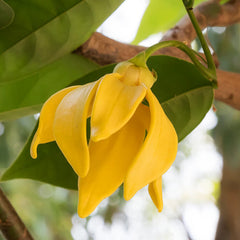What Makes Chypre Perfumes Different From Woody Perfumes?
Click For Affordable Inspired Perfume Alternatives
Perfume lovers and connoisseurs often find themselves exploring a vast array of fragrance families, each with its own unique character and appeal. Among these, Chypre and Woody fragrances stand out as two of the most distinguished and beloved categories. While they may sometimes overlap in notes and style, they possess distinct qualities that set them apart. Understanding the differences between Chypre perfumes and Woody perfumes can enhance your appreciation of fragrances and help you select scents that truly resonate with your personality and preferences. In this article, we will delve into the defining features of each, explore their composition, and clarify what makes them unique in the world of perfumery.
What Makes Chypre Perfumes Different From Woody Perfumes?
Origins and Historical Context
One of the fundamental differences between Chypre and Woody perfumes lies in their origins and historical development. Understanding their roots provides insight into their signature characteristics and how they evolved over time.
- Chypre Perfumes: The term "Chypre" is derived from the French word for Cyprus. The style was created in the early 20th century, notably by the perfume house Coty in 1917 with the launch of "Chypre." The fragrance was inspired by the island of Cyprus and the Mediterranean, evoking a sense of lushness, warmth, and mystery. It marked one of the first classifications of a distinct fragrance family based on its characteristic composition.
- Woody Perfumes: Woody fragrances have roots dating back to ancient times, utilizing natural woods and resins like sandalwood, cedar, and patchouli. The modern concept of Woody perfumes as a distinct category emerged in the mid-20th century, emphasizing warm, earthy, and often masculine scents. They have since evolved to include a variety of interpretations, from fresh and aromatic to deep and smoky.
Core Composition and Notes
The most significant difference between Chypre and Woody perfumes resides in their core notes and overall composition. Each family has a signature scent profile that defines its character.
Chypre Perfumes
Chypre perfumes are characterized by a harmonious blend of citrus, floral, mossy, and woody notes, creating a complex, layered scent. The defining feature is the use of a specific accord that forms the backbone of the fragrance.
- Top Notes: Typically bright and fresh, such as bergamot, citrus, or other zesty fruits.
- Heart (Middle) Notes: Floral elements like jasmine, rose, or ylang-ylang often feature prominently.
- Base Notes: The hallmark of Chypre is the mossy, woody, and sometimes animalic undertone, created by oakmoss, patchouli, labdanum, and amber.
The characteristic "Chypre accord" is built upon the contrast between the citrusy top and mossy, woody base, resulting in a scent that is both fresh and sensual.
Woody Perfumes
Woody fragrances revolve around the scent of woods and resins, emphasizing earthy, warm, and often smoky notes. They can vary widely but typically share a focus on woody accords.
- Common Notes: Sandalwood, cedarwood, patchouli, vetiver, oud, and labdanum.
- Additional Elements: Depending on the style, woody perfumes may incorporate spicy, aromatic, or even sweet notes to add complexity.
- Variants: Woody fragrances can be dry and smoky (e.g., Oud), fresh and crisp (e.g., Woody Aromatic), or sweet and creamy (e.g., Sandalwood-based).
Unlike Chypre, woody perfumes do not necessarily have a citrus or mossy base but focus more on the rich, warm aroma of natural or synthetic woods and resins.
Fragrance Families and Subcategories
While both Chypre and Woody perfumes are broad categories, they encompass various subcategories that highlight their diversity and versatility.
Chypre Variations
- Classic Chypre: Emphasizes mossy, citrus, and floral notes, often with a powdery or animalic nuance.
- Modern Chypre: May incorporate fresh or fruity top notes, with a lighter or more contemporary twist on the traditional accord.
- Fruity or Gourmand Chypre: Adds sweetness through fruit or edible notes, blending traditional elements with modern trends.
Woody Variations
- Dry Woody: Focuses on crisp, resinous woods like cedar or vetiver, often with smoky undertones.
- Sweet Woody: Incorporates vanilla, tonka bean, or other sweet elements with woody notes for a warmer, softer scent.
- Oud or Agarwood: Features the rich, complex aroma of oud, often considered the king of woody notes, prized for its depth and luxury.
Olive Notes and Their Role
In Chypre perfumes, specific notes such as oakmoss, labdanum, and patchouli are pivotal in creating their distinctive mossy, earthy character. These notes give Chypre its iconic depth and complexity, balancing freshness with sensuality.
Woody perfumes, on the other hand, predominantly rely on the scent of natural or synthetic woods like sandalwood, cedar, and vetiver. These notes provide warmth, richness, and an earthy foundation that is often more straightforward than the layered complexity of Chypre.
Differences in Sillage and Longevity
Both families can be long-lasting, but their sillage and projection can vary depending on the formulation and specific notes used.
- Chypre Perfumes: Usually have a moderate to strong sillage with a complex evolution over time. The mossy and woody base notes tend to linger, providing a lasting impression.
- Woody Perfumes: Often possess a robust and enduring scent profile, especially those with dense wood accords like oud. They can project strongly or stay close to the skin, depending on concentration and ingredients.
Occasions and Personal Style
Choosing between Chypre and Woody fragrances often depends on personal style, occasion, and mood preferences.
Chypre Perfumes
- Ideal for evening wear, formal events, or when you want to make a sophisticated statement.
- Suitable for those who appreciate complex, layered scents that evolve over time.
- Often perceived as elegant and timeless, perfect for cooler weather due to their warm and mossy notes.
Woody Perfumes
- Versatile for both casual and formal settings, adaptable to various seasons.
- Great for individuals who prefer warm, earthy, and comforting scents.
- Oud-based woody fragrances are popular for their luxurious and opulent appeal.
Summary and Final Thoughts
While Chypre and Woody perfumes share some similarities, especially in their use of earthy and natural notes, they are fundamentally different in their origins, composition, and overall character. Chypre perfumes are defined by their distinctive mossy, citrus-infused accord that creates a layered, complex scent profile. In contrast, Woody fragrances focus on the rich, warm aroma of woods and resins, emphasizing earthy, grounding qualities that evoke nature and comfort.
Understanding these differences can help you navigate the diverse world of perfumery more confidently. Whether you prefer the sophisticated, layered elegance of Chypre or the warm, earthy embrace of Woody scents, both families offer a wealth of options to suit every mood and occasion. Ultimately, the choice between them comes down to personal preference and the impression you wish to leave with your signature scent.
Buy Perfumes - Best Online Retailers
Click For Affordable Inspired Perfume Alternatives
Click For The Best Niche Perfumes & Decants
Pheromone Perfumes - Confidence, Attraction & Appeal - Click For More
Home Fragrances & Candle Warmers - Click To Scent Up Your Spaces Today!



